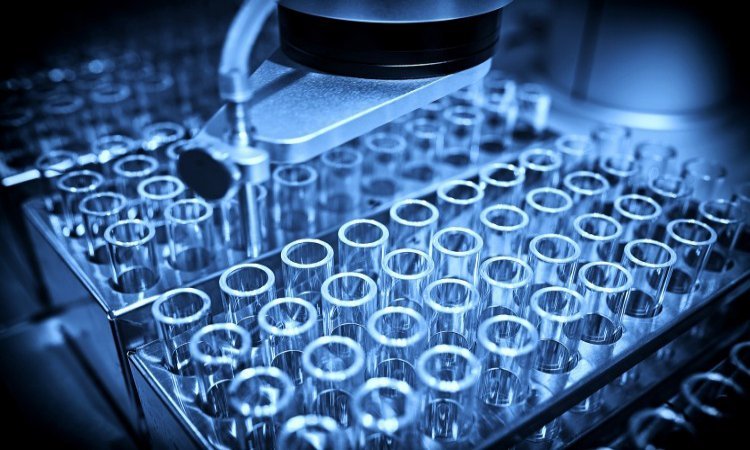 The use of laboratory consumables is paramount in ensuring accurate and safe experiments. These consumables refer to a wide range of supplies and materials, such as test tubes, pipettes, Petri dishes, and reagents. Laboratory consumables play a vital role in ensuring the success of any research project, providing researchers with the necessary tools to collect accurate data and make discoveries. In this article, we will explore the different types of laboratory consumables, their benefits, and how to properly handle and store them.
The use of laboratory consumables is paramount in ensuring accurate and safe experiments. These consumables refer to a wide range of supplies and materials, such as test tubes, pipettes, Petri dishes, and reagents. Laboratory consumables play a vital role in ensuring the success of any research project, providing researchers with the necessary tools to collect accurate data and make discoveries. In this article, we will explore the different types of laboratory consumables, their benefits, and how to properly handle and store them.
Several types of laboratory consumables in Singapore are commonly used in research settings. These include disposable gloves, microcentrifuge tubes, beakers, flasks, and Petri dishes. Disposable gloves are crucial in ensuring laboratory safety by protecting researchers from hazardous materials or organisms that may be present on surfaces. Microcentrifuge tubes are cylindrical containers used for sample storage, homogenization, and centrifugation processes. Beakers and flasks are used for mixing and measuring liquids and come in different shapes and sizes.
The use of laboratory consumables provides researchers with several benefits. Firstly, they help to ensure accuracy in results by providing precise measuring tools such as pipettes and test tubes. Secondly, laboratory consumables speed up the experimentation process by providing pre-measured amounts of chemicals or solutions, saving time spent measuring individual components. Thirdly, safety is increased when using laboratory consumables, as opposed to mixing chemicals by hand without protection.
How to Properly Handle and Store Laboratory Consumables
Laboratory consumables are essential components of any lab, and proper storage and handling are key to the success of any experiment. With the right techniques, you can ensure your lab products stay in top condition for as long as possible. Here are some tips on how to properly handle and store laboratory consumables.
1. Label everything –
Proper labeling is essential when it comes to storing lab supplies correctly. Label containers with the name of each item, their expiration date (if applicable), a list of ingredients or components (if applicable), and instructions for use if necessary. This will help ensure that items don’t get misplaced or confused with other items in your lab.
2. Check dates –
Many laboratory consumables have a shelf life associated with them, so make sure to check expiration dates before using them in experiments or storing them away for future use. If something has expired, dispose of it safely instead of keeping it around just in case you need it later on down the line; expired materials can be potentially dangerous if used incorrectly or carelessly!
3. Store appropriately –
Different types of laboratory consumables require different storage conditions. For example, some consumables may require refrigeration while others may need special light exposure or other environmental controls to remain viable for use over time. When storing consumables, it’s important to follow the manufacturer’s recommendations to ensure their quality and longevity.
4. Keep track of inventory –
Keeping track of your inventory is important to avoid running out of critical items in the middle of an experiment. Create a system for tracking what you have on hand, and make sure to restock when supplies are running low.
5. Use proper handling techniques –
Certain consumables, such as pipettes, require proper handling to avoid contamination or damage. Always follow proper handling procedures and use appropriate personal protective equipment (PPE) to avoid contact with hazardous materials.
6. Keep the lab clean –
A clean lab is essential to avoiding contamination of consumables. Make sure to clean all surfaces and equipment regularly with appropriate cleaning agents, and dispose of any waste materials properly.
 In summary, proper handling and storage of laboratory consumables are essential to maintaining the quality and integrity of your experiments. By following these tips, you can ensure that your lab products remain in top condition and are ready to use when you need them.
In summary, proper handling and storage of laboratory consumables are essential to maintaining the quality and integrity of your experiments. By following these tips, you can ensure that your lab products remain in top condition and are ready to use when you need them.
Conclusion
Laboratory consumables are essential components of any research lab. They provide researchers with the necessary tools to conduct experiments and collect accurate data, making discoveries possible. Laboratory consumables are also generally affordable and easy to replace when necessary, making them an invaluable part of any research lab’s inventory. Proper handling and storage of laboratory consumables are necessary to ensure their efficacy and longevity. By following proper techniques, researchers can ensure their lab products stay in top condition for as long as possible.




